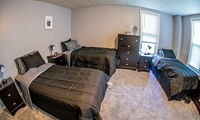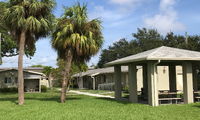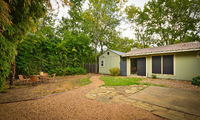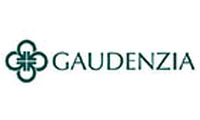Pennsylvania Addiction Treatment Centers
 Pennsylvania is known for many things, being the “Coal State,” the “Quaker State,” but most importantly, it is the birthplace of the United States itself. Within its eclectic mix of urban and nature locales lies a great selection of inpatient, detox centers, and outpatient programs to choose from.
Pennsylvania is known for many things, being the “Coal State,” the “Quaker State,” but most importantly, it is the birthplace of the United States itself. Within its eclectic mix of urban and nature locales lies a great selection of inpatient, detox centers, and outpatient programs to choose from.
The Definition of 'Addiction'
When people become addicted to a substance, the change is a two-fold process. Your body develops a physical need for dopamine (the “feel good” chemical), which your brain can no longer produce naturally. Consequently, you develop urges for more of the substance which in turn damages your body.
Whether it is alcohol, narcotics, or pharmaceuticals, many people in the U.S. suffer from addiction and it has complications that extend much further than self-harm. It profoundly affects your interpersonal relationships with family and friends and even can sabotage your career.
Treatment requires proper physical conditioning and psychological counseling. You cannot simply quit your habit without serious consequences.
Pennsylvania Rehab Facilities
The best rehab centers in Pennsylvania are located in the Philadelphia and Allentown areas, along with Willow Grove and Malvern. These areas have top-notch rehab centers that surrounded wonderful blend of nature and bustling city life that feels both remote and urban at the same time.
Addiction Rehab Programs
Essentially, there are two types of rehabilitation: residential and outpatient. Residential rehabs require patients to live in a facility, while outpatient services only require people to attend treatment sessions for specified periods of time.
Both are good choices, however, you will need to determine which one best suits your needs after assessing your needs.
Residential facilities are your best bet if you need individualized care and a regimen to follow. Every step of your recovery journey is tailored specifically to your needs. Outpatient programs, on the other hand, offer more freedom and oftentimes use a group therapy approach. They are more discretionary choices for the patient. They are great alternatives for those who do not need intensive care and need something that will work around their schedule.
Residential facilities are more rigid in terms of scheduled care but offer an excellent rehab framework that promotes focus and resolve. A much needed perk that helps stave off negative influences that can contribute to a potential relapse. This, of course, means you must spend time on your own secluded from friends and family. However, you will be in good hands; you will receive medical supervision by highly-trained staff that will tend to all your needs. Outpatient facilities also have structure, with the added benefit of returning to your home environment. However, you will need to exercise good judgement as your independence will be tested by your ability to stave off your triggers and temptations. On the flipside, you will have your loved ones for emotional support, if needed.
Because of the poisonous nature of drug use, detoxification is necessary to promote full-fledged recovery. This process is not devoid of certain risks, so it includes proper monitoring and round-the-clock care. Residential programs are best for heavy users. For less serious addiction, outpatient rehab programs are better options. They require regular visits to a hospital or facility near you for systematic evaluations while detoxing. Best of all, you will gain knowledge concerning drug abuse as well as much-needed counseling.
When it comes to addiction, it is a two-front battle. You must cleanse your body, but your must also maintain your mental health during your quest for sobriety. Residential rehabs specialize in comprehensive physical and mental health for this very reason. Outpatient facilities do this in a similar fashion, however they focus more on scheduled meetings rather than 24/7 care.
Alcoholism in Pennsylvania
Alcohol, though different in nature, possess similarities to prescription and hard drugs in terms of addiction.
As such, the National Institute on Alcohol Abuse & Alcoholism’s (NIAA) most recent study determined that there are about 17 million adults who possess alcohol use disorder (AUD). Furthermore, 1 in 10 children in the United States live in homes with at least one parent who has a drinking problem.
The 2014 Behavioral Health Barometer report by SAMHSA states that in Pennsylvania, “In Pennsylvania, about 273,000 people aged 12–20 (17.8 percent of all people in this age group) per year in 2009–2013 reported binge alcohol use within the month prior to being surveyed.”
Medication Assisted Treatment
Each alcohol rehab center treat addiction in their own ways. However, detoxification is a crucial first step treating this disorder. Purification is the largest portion of the pie, and it will jumpstart your journey to recovery.
Again, if you decide to take the path of residential rehabilitation, you are required to remain at a facility for your full recovery. Outpatient rehabilitation requires weekly attendance, though you are free to return home after each session. This allows you to work, spend time with family and live your life normally.
In some cases, you may also need to take medication that will reduce any potential cravings. They will also help you deal with any resulting withdrawal symptoms as they arise. If your addiction is more severe, you may need to take meds that induce certain conditions to manage your alcoholic tendencies, such as meds that will cause nausea if you ingest alcohol. Here are some examples of pharmaceuticals that take an elevated approach to recovery:
Acamprosate: Manages your alcohol addiction by stabilizing your brain chemistry, effectively reducing your urges for consumption.
Naltrexone: Offsets your alcoholic cravings by outright blocking the chemical receptors that trigger opioid responses from alcohol consumption. Originally purposed for treating opiate addiction, it is now clear by the U.S. Food and Drug Administration (FDA) for treating alcohol abuse.
Disulfiram: Inflicts headaches, nausea or vomiting if alcohol is consumed. Used in extreme cases where alcohol consumption is beyond simpler methods of control and treatment.
Dual Diagnosis for Co-occurring Mental Health Disorders
As stated earlier, mental health plays a big role when it comes to substance abuse, which is why dual diagnosis is crucial during recovery. Dual diagnosis is where an individual has a co-occurring disorder that manifest. Examples of co-occurring disorders, like gambling or sexual addiction, can complicate recovery. Consequently, trying to determine whether the substance abuse or mental disorder is more prevalent can prove difficult. With dual diagnosis programs, you will be evaluated for both disorders. This gives you the best shot of conquering your addictions and effectively take back control of your life.










